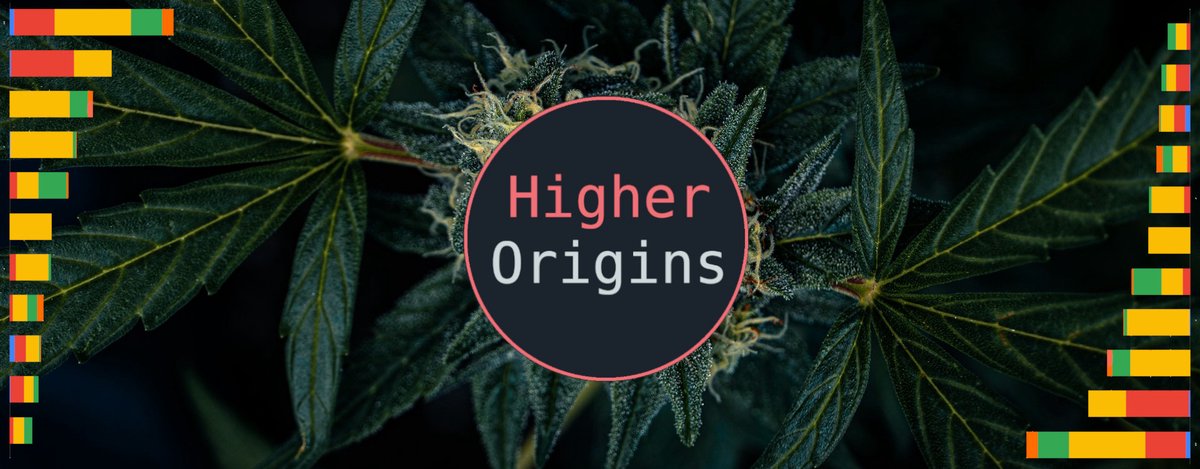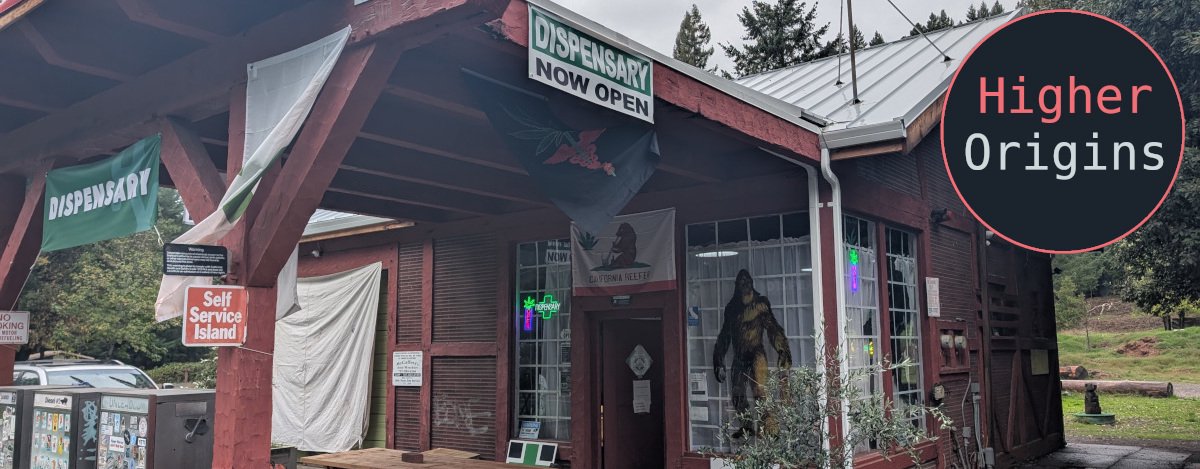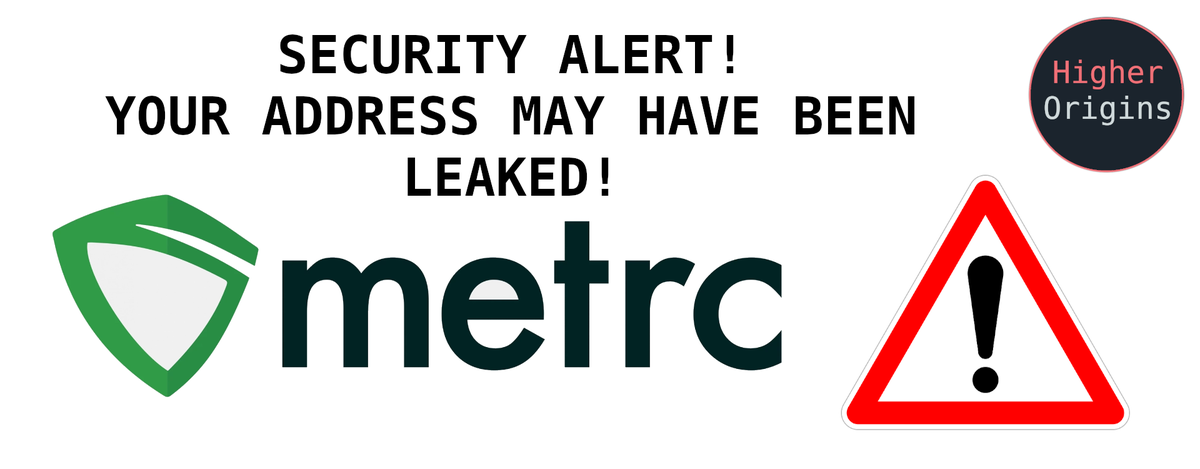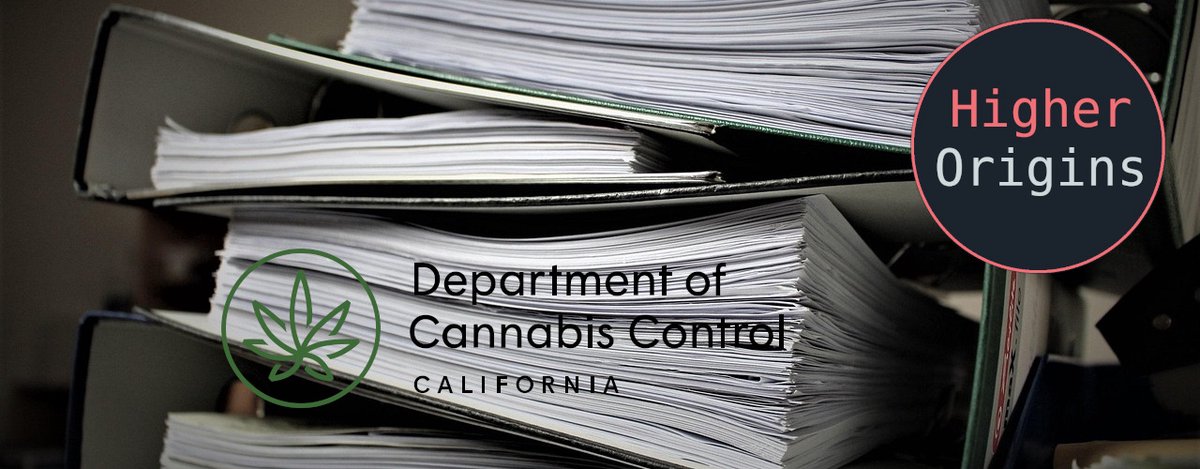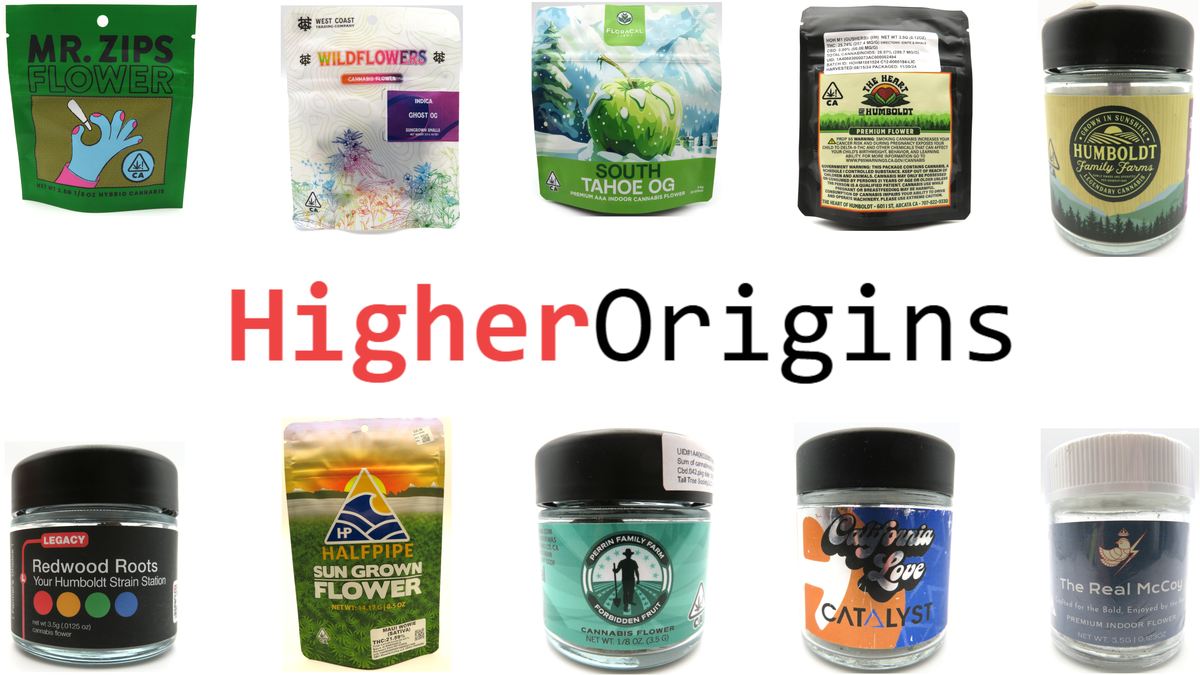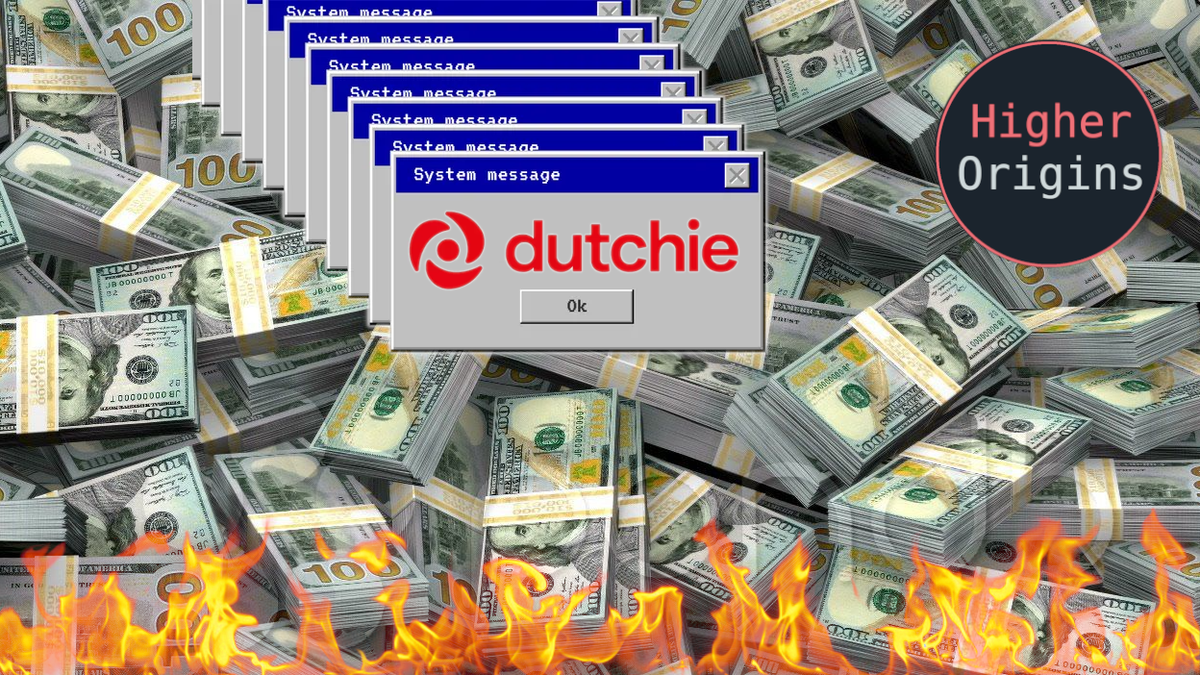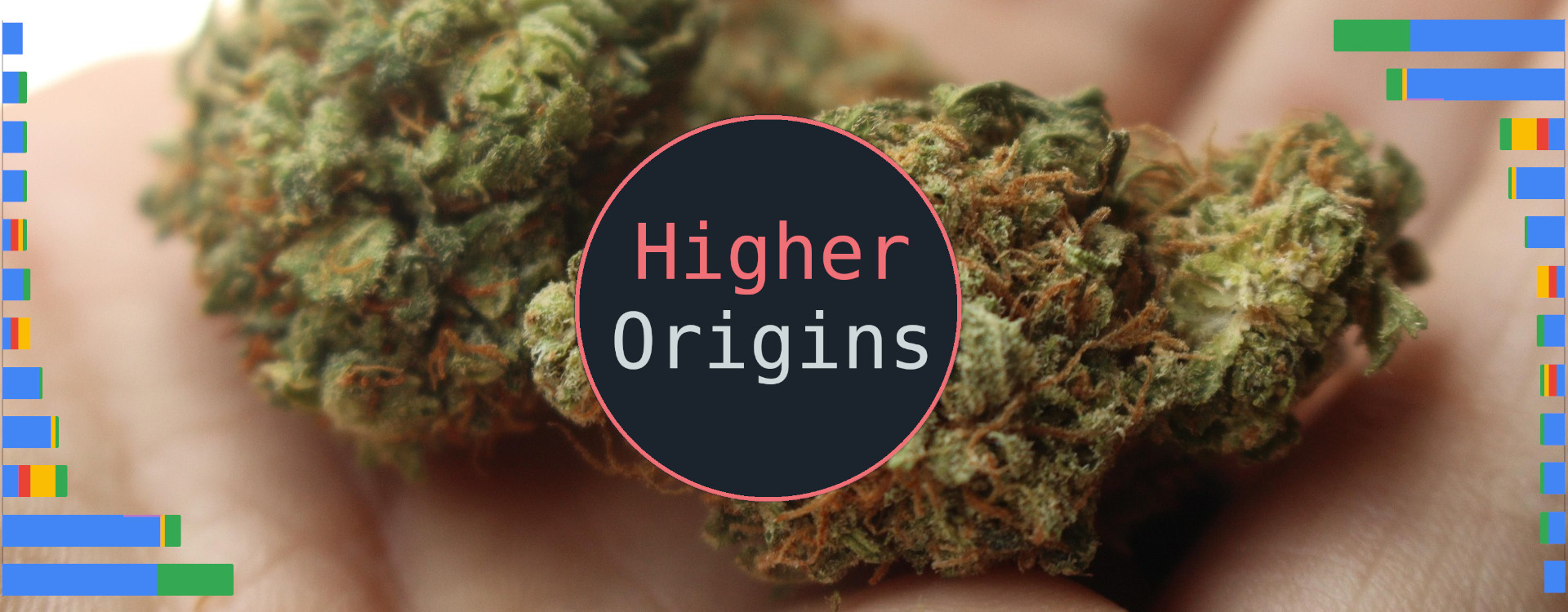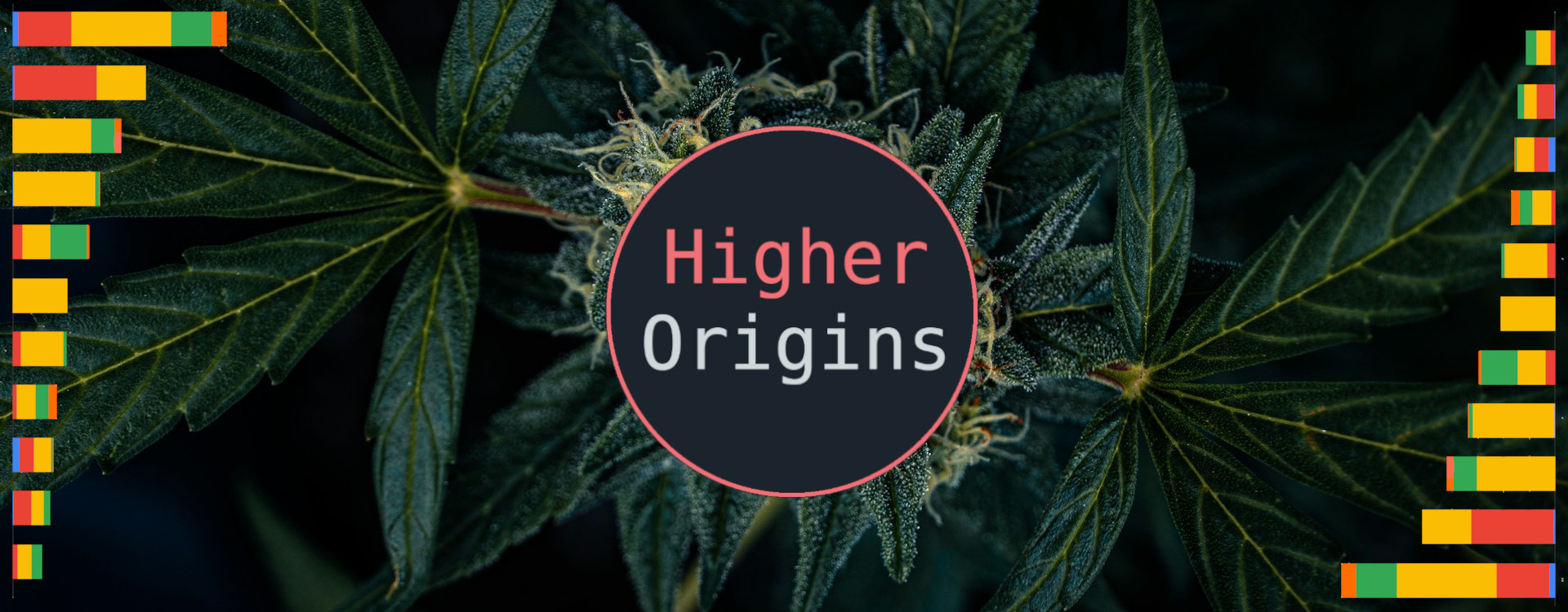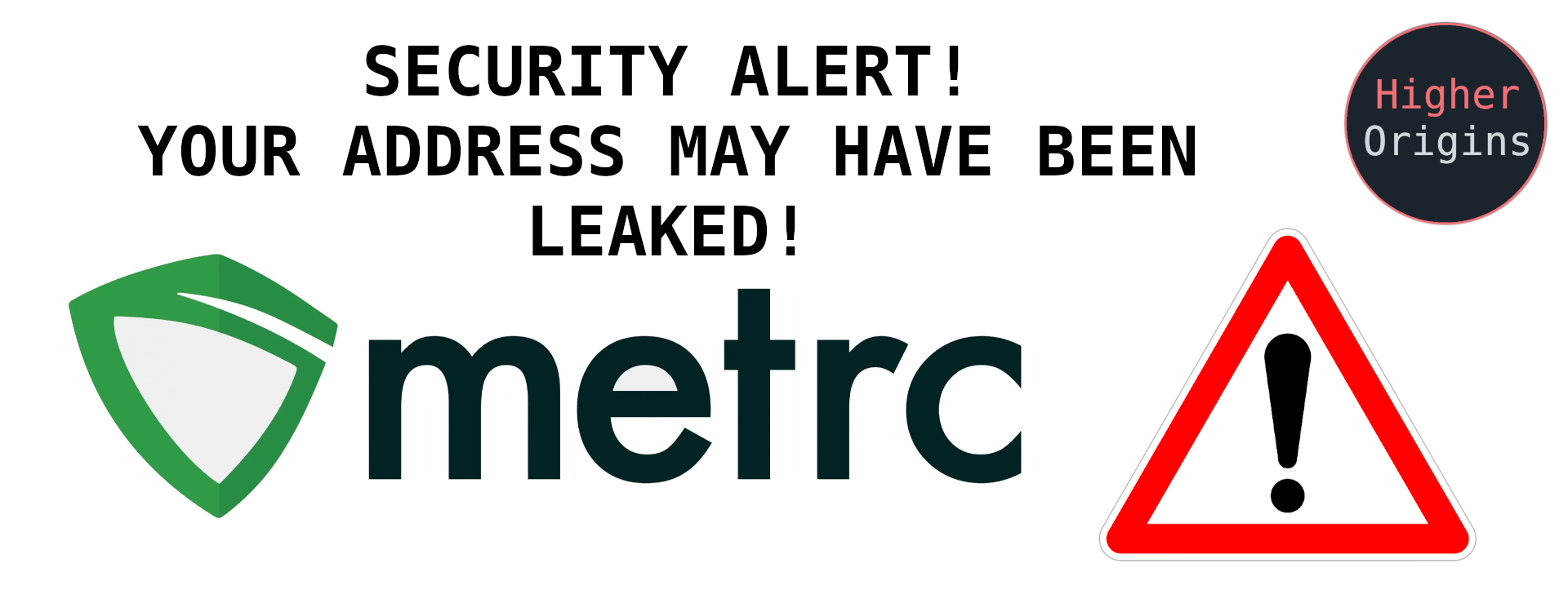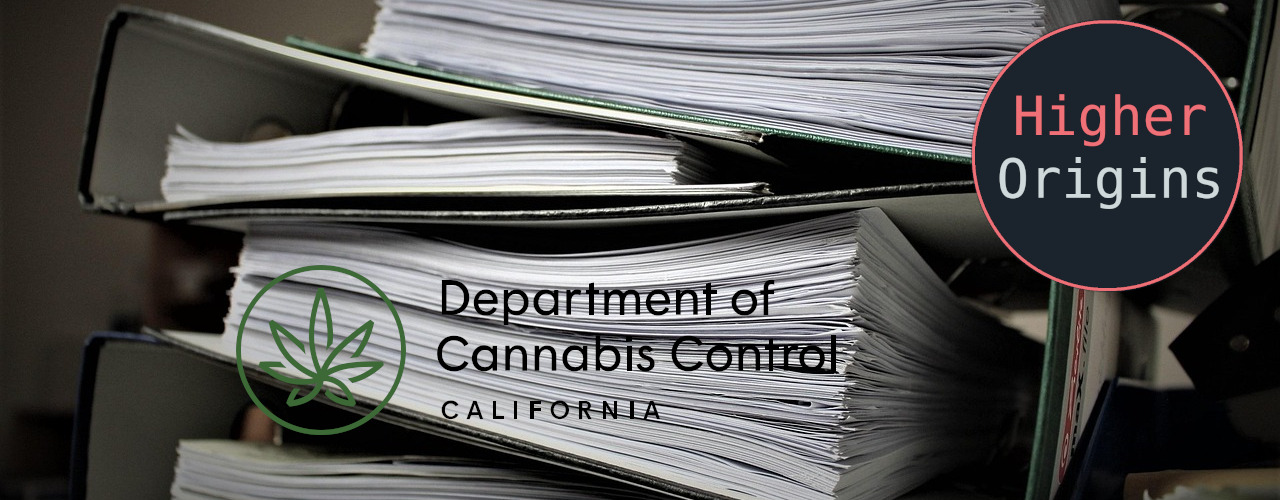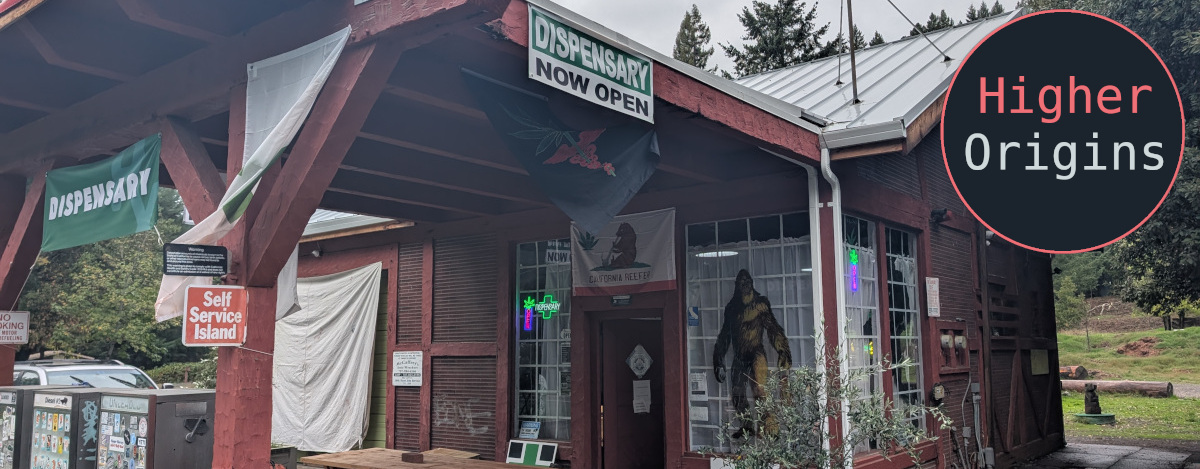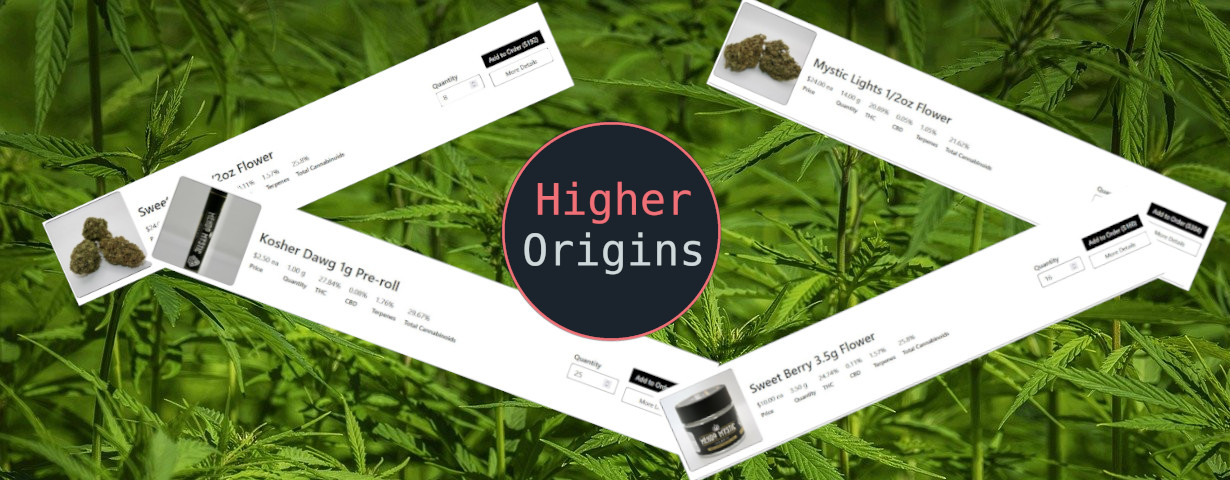We’ve all heard about blockchain, that heavily hyped magic computer tech that runs Bitcoin, makes people millionaires overnight, and somehow justifies those funny pictures of monkeys that everyone was selling for heaps of money two years ago. If you’re on this site, you probably know at least a bit about cannabis in California- it gets grown, trimmed, shipped, packaged, and eventually you end up with a heavily taxed jar of nugs, in spite of all the obstacles the government throws into the supply chain.
But, can these two concepts work together? Does blockchain actually offer any practical benefit to cannabis, and can it help calm the bureaucratic hellscape in which we find ourselves these days? Will NFT’s ever be a meaningful part of the cannabis industry, and will you be able to make money on it?
Probably not, at least for a very long time.
At Higher Origins, we’ve had some past professional experience in blockchain, through various startups and communities. We’ve written whitepapers, walked the convention floors, hodl’d through dips, shown investors pretty charts, and met Vitalik. And through all that, we’ve seen that while blockchain can really be cool, the practical applications of it in difficult industries are rare, difficult to implement, damn near impossible to scale, and 95% of the time end up to be money grabs. We’re not blockchain maximalists, we’re blockchain pragmatists, and pragmatically speaking, it’s a niche technology. Our negative outlook on blockchain in cannabis is rooted in deep experience in both industries.
What the Hell is Blockchain?
A blockchain is a distributed database governed by a shared rulebook of computer code that controls how the database users can interact with it. The data is spread around to all users, and as it changes over time, it’s locked into cryptographically secured code chunks called blocks, with each block containing an encoded version of the block before it. All the computers on the chain run a “consensus algorithm”- code that helps the computers agree on what data is accurate and should be locked into the blocks on the chain. If you’ve heard of mining, proof of stake, or proof of work, those are all different kinds of consensus algorithms.
The data on a blockchain isn’t owned or controlled by any one user on the chain- it’s distributed to all users which makes it impossible for anyone to corrupt or change the recorded data on existing blocks. This is called immutability- the inability to be changed. Because computers, encryption, and algorithms handle a lot of the decision making, blockchains are often described as “trustless”- IE, the system does all the verification for you, meaning you don’t have to trust the other users you interact with, because the system enforces what users can do with it.
Blockchains work well when used as ledgers- records of transactions, which is why they make sense for money tokens like Bitcoin. The blockchain allows token transactions to be tracked and verified in a secure system, basically automating much of the bureaucracy of financial systems, while being very hard to manipulate or freeze by a controlling authority like a government- unlike traditional “fiat” money like the Dollar.
There are generally two kinds of tokens that are used on blockchains- Fungible tokens, which are all similar in function and value like Bitcoins, and Non-fungible Tokens (NFT’s), which each represent something that is unique with its own individual properties and value like collectible art or game pieces. These tokens are stored in computer programs called Wallets, and are bought, sold, and swapped on online exchanges. The system design of how tokens interact with each other, wallets, coded contracts, and the game theory of the blockchain economy is called “tokenomics”
The Current State of California’s Cannabis Data
Now, let’s look at the California cannabis side of things. The California State Government mandated METRC’s “track and trace” software to monitor the legal supply chain. METRC acts as a centralized database for all the cannabis data in the state, and all licensees need to record their data so the State can monitor the industry. Additionally, METRC sells the state millions of little plastic ID tags that get used to tag all plants and packages being tracked. Purportedly, the point of this monitoring is to make sure the products reaching consumers are accurately labeled and safe, licensees can be accurately taxed and audited, and contaminated products can be safely removed from the supply chain.
As we’ve written before, it’s only somewhat effective. METRC does indeed provide the state with a ludicrous amount of data on the industry. However, it is deeply flawed in the following ways:
Product gets mixed up at harvest, so identifying one single plant as a source of contamination is impossible (this could change with recent legislation that does away with the single-plant tag requirements).
METRC is not user friendly and has poor data management- it’s possible to represent certain things in different ways, including in ways that are technically illegal or impossible under the actual laws of legalization, or completely nonsensical based on the realities of cultivation.
This data is interpreted and audited by State employees who can lack understanding of the cannabis industry, and are incredibly overworked, so even if they have good data, they may lack the ability or knowledge to effectively act on it. Misuse of METRC is common- we know, we can see it at all levels, and we know the State can too, since they have the same data we do, but for whatever reason, they do nothing to enforce it, or require METRC to close its loopholes.
Not everyone is good at accurately tracking their cannabis, either intentionally or not. Mistakes or misrepresentations are common and easily fudged into METRC, and the State lacks the manpower or time to correct or follow up on all of these inconsistencies.
Cannabis is variable- chemical concentrations vary from plant to plant, and change as the plant material ages or cures. Furthermore, labs have inconsistency in testing and there is an incentive to inflate test results for THC%, so data on plant chemistry is somewhat shaky. (This may change with the recent increased lab enforcement)
So, given a low quality system like METRC, is it any wonder that people are marketing blockchain as the solution? At first glance, it seems like an improvement. Why don’t we run everything through a secure system that automates a lot of the checks and balances, keeps everything secure, and maybe even allows some neat new economic models to be built around cannabis? That sounds better, right?
We’re not convinced.
Proposed Solutions (and why they’re a bad idea)
Replace METRC With a Blockchain
Let’s think of this in an ideal scenario- California contracts a well intentioned company to build an efficient blockchain track and trace platform, optimized to reduce gas fees. Now, everyone who has finally understood METRC to some workable degree has to drop everything and learn how to use a crypto wallet and a new program to record their data. Gas fees need to be paid by someone, security keys need to be held, and wallet balances need to be monitored. The state will still be ineffective, the regulations will still be ridiculous, and data will still be as unverified as it was before. Let’s unpack these problems a little more:
Bad Data is Bad Data: Blockchains don’t actually guarantee that the data stored on them is good. They just guarantee that it’s stored securely to a common encryption standard. This is known as “Garbage in, Garbage out.” A blockchain system won’t make bad data true- if you lock a bag of trash in a vault, it's just secure trash, not a valuable resource.
Cost: In California, METRC is free for users, since the state pays for it with truckloads of our tax dollars. In blockchain, there are no centralized owners footing the bills like the State. All major blockchains have usage fees called gas fees that need to be paid to submit, transact, or modify data. These fees are variable depending on network conditions, and are tied into the tokenomics of the chain being used. This would be roughly equivalent to if METRC made you buy or sell penny stocks in order to complete your data entry.
Complexity: Sure, METRC is complicated, but blockchain is too. Switching to an on-chain system would not magically make the system any easier for your average user. Blockchains require users to manage their own security, so everyone would have to hold their own wallets, remember security keys, pay gas fees, and transact tokens.
Track and Trace is for the Government, not the People: METRC was made for the state to enforce their rules on the industry. It wasn’t bought or built for us. It’s a centralized system, designed for control and surveillance, not the benefit of its users. Blockchain is the exact opposite of that, and doesn’t fit the use case. There’s a much easier way to decentralize cannabis data in such a way that it directly benefits users: do away with track and trace entirely and let people manage their own supply chain data to a common standard- they already do it in every other industry and it works fine.
METRC sort of works, and other normal software would work even better: Look, METRC is a bad thing. But it still sort of works. It maintains and processes tons of information- we should know, we work with it every day. Naturally, we think track and trace should be abolished, and cannabis should be treated just like any other agricultural product, or maybe alcohol or tobacco. However, we have to be realistic when it comes to the timid, heavily lobbied, and uninformed State regulatory mindset. As much as it sucks, track and trace will be around for a while. Just because the state contracted with an incompetent software provider at the beginning, doesn’t mean it’s impossible to get good software for this industry- it works everywhere else. Good software is good, and going straight to exotic solutions like blockchain from METRC without giving properly implemented, high quality software a try first is extreme.
Customer Reward programs
The idea here is simple- consumers buy cannabis, or buy into a cryptocurrency or NFT, in exchange get rewards like special products, discounts, more cryptocurrency, or collectibles. In theory, this can work fine, although there’s no actual reason to use crypto or blockchain for it and it’s probably more complicated for users that way. Anyone can start a customer rewards program or an exclusive merch/product club, with basic tech and US dollars.
Tokens are often worthless: While some tokens like Bitcoin have lasting economic value, the tokens for most projects are often worth very little. While people who launch blockchain projects might assure you that they’re going to be worth something someday, the truth is that the majority of these tokens are never worth anything, or if they are, they often lose value rapidly after the initial media push of the project launch dies down. Tokens need a large active user base to maintain value, as well as a sufficient trading volume to keep the market for that token liquid and relevant. In order to keep the economy of their project alive, developers will often spend their own tokens into the system, spend investor cash to move tokens, or generally do anything else they can to “jumpstart” the tokenomics. Realistically, without a ton of users frequently and independently using the system, it’s not gonna generate value, and the tokens you’ll gain for using it won’t be worth anything. Which leads to the next point:
Tokens May Not Equal Dollars: Likewise, tokens need to have easy access to an exchange or bridge system where they can be sold for fiat money like dollars, or dollar-equivalent stablecoins like Tether or USDC. This ability to be exchanged for fiat is called an “offramp”. If there’s no easy offramp, the token can’t be turned into fiat at scale, and loses much of its real world value.
Weed isn’t a good adoption market for blockchain tokenomics: A successful token economy built around the data and transactions of the cannabis industry would require:
Value Delivery: The valuable things to the cannabis industry are cold hard cash, good genetics, good connections, stability, and good cannabis. There’s very little that a blockchain project could do to directly provide these to the cannabis industry without giving away cash, operating a good nursery, lobbying to pass industry-stabilizing legislation, or giving out free cannabis. All that is expensive and complicated, so no one is doing it.
Ease of Use: It’s gotta be easy. We know from firsthand experience with Higher Origins that building easy to use tech for the cannabis industry is a challenge- up until recently, nobody in this industry ever wrote anything down. It’s hard enough adapting existing software like ERP and sales software to fit this industry, so it would be near impossible to adapt a new, complex tech like blockchain to fit the industry user base.
A Lot of Users: California cannabis isn’t that big. There’s only about 10,000 active licenses in the State, each using METRC. Since the average business in the state has slightly more than 2 licenses each, let’s halve that, and say there’s 5,000 people who are actually interacting with METRC. Half of those are smaller farms, most of whom only use the software seasonally. 5,000 people across many different license types, data types, and degrees of usage is a very small and complex market to target.
Weed Doesn't Need Game Theory: The complex economic game theory systems popular in blockchain are simply overkill for cannabis. Since day one, the cannabis industry has operated on the three basic incentives that all basic markets have: Social Reputation, Quality Control, and Threat of Retaliation. These are simple.
Social Reputation: If you screw someone over, it reflects poorly on you and makes people less likely to work for you, so you have an incentive to do your best.
Quality Control: Is the product as good as promised, did the pounds arrive on time, etc. Expectation is compared to reality by the people involved in the deal, and if those expectations are met or exceeded, everyone wins and gains reputation, or the reverse happens.
Threat of Retaliation: If you screw someone over, people will retaliate against you. Pre-legalization, retaliation was inconsistent, meaning that certain people wouldn’t retaliate at all if they got screwed over, while others would show up armed. In today’s legalized world, the retaliation is theoretically supposed to come from the State- if you break the law, the state fines you, revokes your license, etc. However, the state’s ability and willingness to retaliate is limited, and naming and shaming on social media by the injured party is probably more common than actual State action.
Genetics on the Blockchain
This one gets tricky. The idea here is arguably good- protection of intellectual property, specifically strain genetics, to prevent the hard work and legacy of breeders from being stolen and diluted. In this case, the blockchain is used as a public ledger of the legal definition (genetic, chemical, lineage, provenance, etc) of the strain that is meant to be protected. This essentially places a permanent signpost online that says “This exact thing is mine, and you can’t have it”. This is usually done by creating an NFT of the relevant information and holding it in the owner’s wallet
Just because it’s documented on a blockchain, doesn’t mean it’s going to get legally defended or resolved there. If someone infringes on someone else's genetic IP that’s listed on the blockchain… then what? The courts and lawyers aren’t part of the blockchain. The entire process of IP defense will take place through traditional legal channels, and the IP NFT will only be a piece of evidence in the case. Sure, it’s good to have evidence, but an NFT alone is pretty shaky evidence of ownership of anything beyond that NFT. For that, you want to go through the established legal channels like these ones that are above our level of legal understanding to speak on.
The potential problem here comes when there’s a blockchain project that is trying to get people to add their IP to the blockchain, and combine it with rewards programs (see above). The idea is that if you hold the IP rights NFT for a strain, you can get rewarded for defining it on the blockchain, and collect royalties or rewards from people who want to use that strain.
We’re not saying that this is the worst idea, but blockchain IP NFT’s shouldn't’ be your first line of defense. Get a lawyer, define your genetics to a legal standard, build your case for novel ownership, get a patent or other legal document, and THEN research reputable blockchain IP projects to potentially get involved in, or just mint your own NFT. People who are selling blockchain to growers as a complete solution to genetic IP protection aren’t trying to protect that IP, they’re trying to monetize it to grow their projects.
Crypto as a Cannabis Payment Solution
Payments in cannabis suck, we’re all aware. The federally regulated banking/credit/financial oligarchy sector is legally prevented from serving the cannabis industry. But wait! Some people have said, “Why don’t we use crypto? They can’t regulate that easily, and you can legally buy crypto, so let’s just create intermediary systems where you buy crypto with your credit card and buy weed with the crypto!”. It makes sense at face value, and in two industries familiar with the grey areas of financial regulation, it seemed like something that might just work.
We’re gonna keep it simple: it didn’t work, it hasn’t worked, and it won’t work, at least not until something like the SAFER act passes. The government can, it turns out, regulate crypto pretty heavily. There have been some well thought out attempts at getting this to work legally, and for full disclosure, at one point in the past we were investigating the option of integrating this into a very early model of Higher Origins, but we didn’t.
The best example of this being tried, and failing, is POSaBit, a well known payment processor. According to this press release, they tried this for quite a while, even hinting here that they would keep researching it, before finally ending the program in September. Other examples of this failing have clearly shown that crypto use for cannabis is viewed as bank fraud, and won’t be tolerated.
Create NFT’s of units of cannabis in the supply chain, buy an NFT, get some cannabis
Blockchain is terrible for tracking physical stuff: Because blockchain deals in secure verifiable data, there needs to be a way to verify that data. This is easy in the digital world, because the algorithm checks for you if the data is correct. This is hard to achieve with cannabis. Let’s say on a hypothetical crypto-METRC, there’s an NFT that represents a pound of cannabis in Bob’s warehouse. Okay, cool, how do we verify that? What if Bob is lying? Do we need to send an auditor there, with a scale and a chromatography machine and a barcode scanner, and a GPS, to weigh, analyze, scan, and locate that cannabis? Can you trust the auditor? What if Bob slips him 20$ to falsely claim the cannabis is there? Do we have to do that for every pound in the system, every time? Of course not, all that verification is too expensive and the industry would grind to a halt. This is an inherent problem with blockchain: it’s easy to verify digital assets with a few lines of code, but damn near impossible to verify physical ones without robust and restrictive physical infrastructure. Blockchain track and trace would not actually “verify” the data on it any more than METRC does.
NFT’s are almost never used effectively and are often worthless: Theoretically, NFT’s can be used to represent almost anything. The most effective use cases for NFT’s have been as “game pieces”- unique tools or options within a complex system that grant their holders some kind of access, credential, or ability. Unfortunately, most NFT projects haven’t been that sophisticated, with most being used to sell rights to pixelated memes on the internet that anyone can screenshot. Some of these collectibles come with innovative tokenomics, but in general they are almost worthless because the user bases they were supposed to attract to drive their use didn’t materialize or have any staying power. There is a small slice of the NFT economy that trades in high art or NFT’s of true cultural or crypto-historical value, as well as some that are linked with physical items, but these are the exception rather than the rule. In cannabis, there are very few things that can be practically represented by NFT’s that have any real value, and certainly nothing of value who’s ownership can’t be defined by standard boring legal paperwork.
Weed isn’t all a commodity: While hustlers will insist their mids are just as good as true high grade, cannabis isn’t all the same, or in blockchain speak, it’s not fungible. Not all pounds are the same, even within the same crop. This means that you can’t accurately represent it with fungible tokens, which makes the entire development of a blockchain system to track it significantly more complicated.
Trust me, it’s Blockchain
This is basically what happens when a blockchain company figures out that nobody in their target industry actually understands or wants to do any of the necessary things for blockchain tech, like holding wallets, remembering security keys, exchanging crypto etc. As a quick fix to these obstacles of onboarding, they simply tell their customers “oh don’t worry, we’ll manage all that stuff for you, just give us money, it’ll still be blockchain but easy, trust me bro!” This is incredibly bad practice, as it essentially makes the company the centralized controller of their user’s accounts and wallets, which is exactly the opposite of what blockchain tech is supposed to do.
Red Flags to Watch for With Cannabis Blockchain
There are currently crypto scams circulating that target the cannabis community. There’s a million things to look out for and it’s all quite technical, so the simple solution here is to simply keep blockchain away from your cannabis entirely unless you really know what you’re doing. If you are more optimistic regarding blockchain and cannabis than we are, and you’d like to get involved with a project, here are some of the red flags to look for:
If they ask you to directly send them any kind of well known crypto assets of actual tradeable value (like Bitcoin, Ether, BNB, Solana, Cardano, etc), then that means you are basically just giving them free money.
If you do contribute cryptocurrency into a project, carefully inspect the smart contract you're transacting with, and who can pull funds from it.
If you can’t get anyone to vouch for them, if they feel fake or pressure you to act fast, if they change their story a lot, all of these things are classic signs that they’re trying to rope you into something. True crypto builders with the understanding and patience to build something valuable in the crypto space will be more patient, and they should understand that everything in cannabis takes a while.
If they offer to manage your account or wallet on their project for you to “save you the effort”. This is completely counter to a key rule of crypto: if you don’t hold your keys, you don’t hold your crypto. Letting someone manage a wallet for you with your passwords is the same as giving someone the keys to your house or bank account- you have no actual control, and crypto ownership is all about secure control.
If they ask for cash or crypto to “add tokens to your wallet/account”. Crypto is about secure exchange- if you can’t buy or swap their token into your wallet by yourself through a contract, or on an exchange or swap pool, it’s probably either a scam or a project that is so badly built/incomplete that it’s not worth getting involved in.
If their website doesn’t include a public white paper, technical breakdown, or link to a blockchain explorer page for their tokens/contracts. This is basically the blockchain equivalent of showing you their hand, showing how their project works, what their tokenomic goals are, and putting it out there for all to see- as the saying goes: sunlight is the best disinfectant- if they aren’t willing to show the world, there’s something wrong. Even if there are public white papers, get someone with actual blockchain experience (in coding/building/tokenomics, NOT just an investor) to review it for you. Also, don't sign their NDA's.
They ask you to sign a contract that asks you to digitize, license, or mint any of your intellectual property (including genetics) as an NFT, without an ironclad escape clause that guarantees you full restoration of your IP in the event that you do not receive the specifically listed value/returns that you were promised. Furthermore, if they ask you to “protect” your IP on the blockchain in any way without urging you to get a patent or other legally defensible status, they’re just trying to monetize your IP, not protect you.
They don’t have a lawyer, or don’t want to talk to yours.
They say that their crypto project is a legal “solution to federal cannabis banking regulations” and allows you to get around rules on payment processing for cannabis. It’s not, it’s illegal.
If any of the following due diligence turns up anything that feels fishy, don’t trust it:
Exploring their blockchain presence on a block explorer like Etherscan including the wallets they interact with at their project launch and their contract code
Checking their token value/volume on a coin tracker like CoinGecko
Looking up their corporate structure on OpenCorporates
Checking their owners/employees histories on LinkedIn
Checking previous versions of their site on the Wayback Machine
Searching their owners/operators online
Having someone with real blockchain experience audit their project
Conclusion
Blockchain can be cool, we get it, we’ve been there. For certain things, it’s really innovative. But for weed, we simply can’t see the justification for pretty much every project out there that we’ve seen. At the end of the day, the best way to reliably, safely, and sustainably make money in this industry is to sell good weed, not screw people over, manage your costs, cover your ass, and work hard. If blockchain helps you with that, best of luck!
If you're interested in what we do and would like to get involved, California licensed cannabis businesses can join here, or you can become a supporter here. (crypto not accepted)
Do your own research- the Higher Origins team

